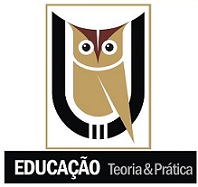EVALUATION OF THE EFFICIENCY OF THE STUDENT SCHOLARSHIP PROGRAM OF A CAMPUS OF A BRAZILIAN FEDERAL UNIVERSITY
DOI:
https://doi.org/10.18675/1981-8106.vol28.n58.p320-338Keywords:
Ensino Superior. Assistência Estudantil. Permanência. Coeficiente. Avaliação da Eficácia.Abstract
The Brazilian Federal Constitution predicates equal conditions for access and permanence in school. The Higher Education History in Brazil is marked by social inequality. The program evaluation culture has been institutionalized in Brazil. This study evaluates the efficiency of the Student Aid Program of a Brazilian Federal University, through comparative studies of the academic coefficient and the permanence among students who are benefited by the program and those who are not. The social issue examined is the permanence of students in situations of socioeconomic vulnerability in higher education. In order to confront these issues, norms were edited, and actions were developed, including the Student Aid Program of this University. This is a case study in which data were collected from the Institution’s academic system and from the aid program. A system of indicators was built, completed by the effectiveness of the Student Aid Program. Results demonstrate higher academic grades from scholarship students compared to other students, as well as lower evasion rates for scholarship students regarding other students. Keywords: Higher Education. Students Aid Program. Students Permanence. Efficiency Evaluation.Published
How to Cite
Issue
Section
License
Authors who publish in this journal agree to the following terms:
a) Authors assign copyright to the journal, with the work simultaneously licensed under the Creative Commons Attribution License that allows sharing of the work with acknowledgment of authorship and publication in this journal.
b) The policy adopted by the Editorial Committee is to assign copyright only after a period of 30 months from the date of publication of the article. After this time, authors interested in publishing the same text in another work must send a letter to the Editorial Committee requesting the release of the assignment of copyright and wait for a response.
c) This journal provides public access to all its content, since this allows greater visibility and reach of published articles and reviews. For more information on this approach, visit the Public Knowledge Project, a project that developed this system to improve the academic and public quality of research, by distributing OJS as well as other software to support the public access publication system to academic sources. The names and email addresses on this website will be used exclusively for the purposes of the journal and will not be available for other purposes. This journal provides open any other party  This work is licensed under a Creative Commons License
This work is licensed under a Creative Commons License











